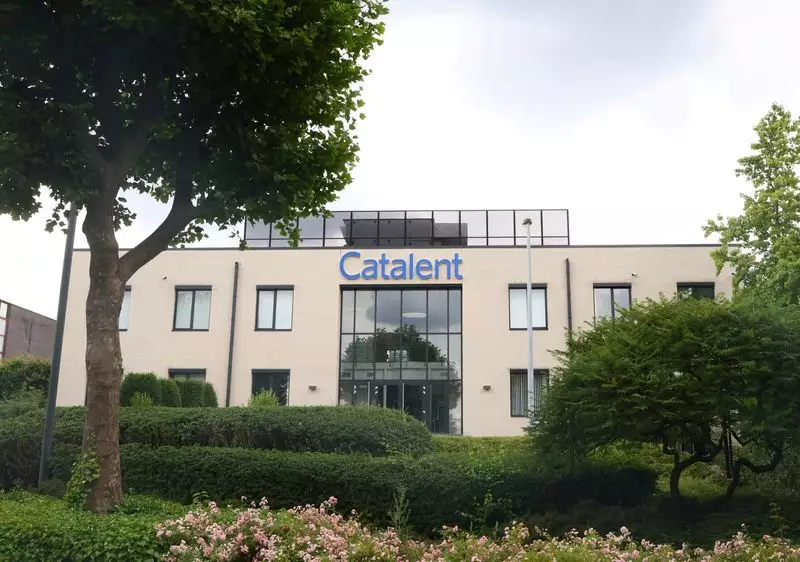The recent $16.5 billion proposal by Novo Holdings, the majority stakeholder of Novo Nordisk, to acquire pharma manufacturer Catalent has sparked significant alarm among U.S. consumer advocacy groups and labor unions. The outcry centers on fears that this acquisition could adversely affect competition in the burgeoning sectors of weight loss treatments and innovative gene therapies. The collective voice comprised of the U.S. Public Interest Research Group, the SEIU, and various health advocacy organizations has called upon the Federal Trade Commission (FTC) to block the deal, positioning it as a potential monopolistic move that undermines industry competition.
In a letter addressed to the FTC, stakeholders expressed vehement concerns regarding how this acquisition may constrain competitive capabilities for major pharmaceutical players like Amgen, Pfizer, Roche, and AstraZeneca, all of which are reportedly developing their own GLP-1 receptor agonists — a class of medications pioneered by Novo Nordisk’s Wegovy, which has become a leading weight loss drug. The apprehension is that if Novo Holdings gains control over Catalent, a crucial player in pharmaceutical manufacturing, it may stifle the ability of these competitors to manufacture their respective drugs effectively, thereby limiting options for consumers.
The implications are particularly serious for up-and-coming firms, such as Viking Therapeutics and Structure Therapeutics, which are also exploring GLP-1 therapies. The concern, as articulated by the advocacy groups, is rooted in the manufacturing capacity and expertise that may not be accessible to future competitors if Novo Holdings exerts market control via Catalent.
In response to the environmental pushback, Novo Holdings has maintained a robust defense of the acquisition, emphasizing that it is fundamentally pro-competitive. The firm contends that the acquisition is designed to enhance supply chain capabilities for drugs like Wegovy, subsequently benefiting customers, patients, and the communities where Catalent operates. Statements from Catalent echo this sentiment, underlining the belief that being under Novo Holdings would bolster their capacity to provide enhanced service delivery and outcomes.
Nonetheless, stakeholders question such assurances, arguing that benefits primarily favor Novo Holdings at the expense of competitors and, ultimately, public access to newer, potentially life-saving therapies.
Adding to the complexity of this acquisition are the actions of government figures such as Senator Elizabeth Warren, who have demanded a thorough examination by the FTC. The situation underscores a growing trend where regulatory bodies are scrutinizing big pharmaceutical mergers more harshly, particularly under federal antitrust laws. Onlookers suggest that the FTC’s analysis could set a precedent that either reinforces or dismantles the notion of competitive fairness in the pharmaceutical sector.
Furthermore, the involvement of healthcare unions, representing millions of workers, adds a compelling dimension to the debate. Their advocacy signifies broader concerns over job security and industry practices, attempting to ensure that jobs—pivotal for public health services—are not jeopardized by monopolistic tendencies.
The Future of Gene Therapy and Manufacturing Capabilities
A particularly intriguing facet of this acquisition discourse pertains to gene therapies, technologies that stand at the frontier of medical advancement. The labor and consumer groups are rightfully worried that Novo Holdings’ control of Catalent might hinder the manufacturing capabilities for critical gene therapies like those developed by Sarepta and Novartis, heightening fears that future therapeutic innovations could be limited.
The significance of maintaining robust competition in gene therapy manufacturing cannot be overstated. In the current landscape, collaboration and competition simultaneously drive innovation. The letter from consumer groups notably highlighted Catalent’s existing contracts with firms such as Sarepta Therapeutics, which produces Elevidys, and Novartis for Zolgensma. The potential bottleneck created by this acquisition may stifle these advancements, amplifying risks associated with monopolistic power within the sector.
As the FTC prepares to evaluate Novo Holdings’ acquisition of Catalent, it stands at a crossroads that will shape the future of pharmaceutical competition. While proponents argue that the acquisition would fortify drug supply chains and enhance outcomes for customers, the concerns raised by labor unions and consumer groups cannot be ignored. The potential for reduced competition, especially within weight-loss therapies and pioneering gene treatments, must be analyzed with the gravity it deserves. In overseeing this corporate maneuver, it is crucial for regulatory bodies to prioritize not only the current market dynamics but also the long-term health of innovation and consumer access in the ever-evolving pharmaceutical landscape.

